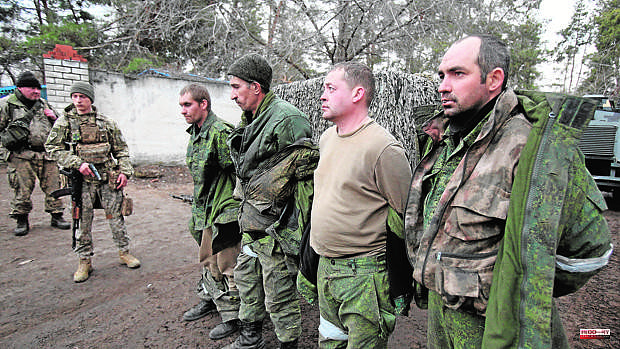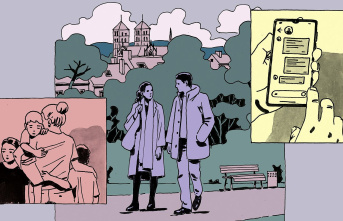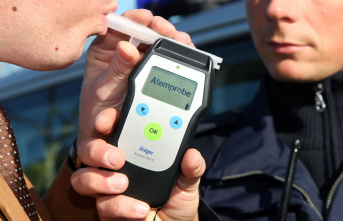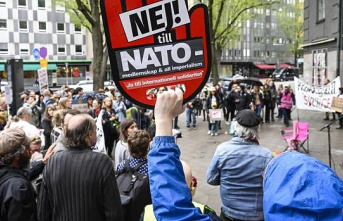Few reasons to glimpse a trait of humanity in a war are as powerful as respect for the prisoners and the healing of their wounds. This is provided for by the last Geneva Convention, of 1949, which establishes that enemy soldiers wounded in combat are treated "the same as their own". Ukraine has officially stated that it adheres to this standard. Russia has not commented on this, and unlike the kyiv regime, it also refuses to give figures. Moscow limits itself to speaking of "significant casualties" in the war in Ukraine, both in number of dead and wounded or missing.
The Zelensky government gave this week the figure of almost 27,000 Russian soldiers killed in the more than two months of offensive; the number of prisoners and wounded among the invading force is supposed to be much higher.
Various media reports attest to Ukraine's effort to honor Geneva commitments on the treatment of Russian prisoners of war. The latest, the one carried out by Agence France Presse in the military hospital in Zaporizhia, a city in southern Ukraine relatively calm after the movement of the front several tens of kilometers to the east.
The hospital works tirelessly 24 hours a day to care for hundreds of wounded, both Ukrainian civilians and military and Russian soldiers. The windows of the enclosure are covered with thick canvas, and at night the doctors and nurses avoid the use of electric light as much as possible so as not to be an easy target for Russian aviation. Last week, the World Health Organization (WHO) deplored that more than 200 Ukrainian health centers have been attacked since the hostilities began. Ukraine speaks of more than 600.
“We also serve Russian soldiers, although maybe we shouldn't. Maybe we should leave them there to fertilize our land," Dr. Farad Gojarovich, a surgeon at the Zaporizhia military hospital, told AFP. The wounded Russian soldiers "are brainless youth soaked in propaganda," adds the center's director, Dr. Victor Pysanko. "They say they want to liberate Ukraine, but they also want to kill as many Ukrainians as possible."
Both Farad and Pysanko refer to their Hippocratic Oath, by which, following the norm established by the Greek doctor in the fifth century before Christ, they commit themselves as doctors to "have no other purpose than the good and health of the sick". ». An ethical commitment that implies rejecting practices such as abortion and euthanasia, and in case of war, healing wounded enemies.
His feelings of rancor are evident ("it is inevitable that there will be a lot of black humor with the Russian wounded who come to us", warns Pysanko, "we would like not to waste time with them to focus only on our own"), but there have been no complaints for breaches of medical ethics. The doctors are moved by another reasoning: each Russian soldier saved from death can be exchanged in the future for Ukrainian prisoners.
There have been POW exchanges to date, surrounded by publicity, but not many. The most famous was that of the mayor of Melitopol, Ivan Fedorov, kidnapped on March 11 and released shortly after. On March 21, Tatiana Moskalkova, the Kremlin's human rights delegate, referred to the exchange of her for nine Russian soldiers.
The latest prisoner exchange occurred on Friday of last week. Deputy Prime Minister Iryna Vereshchuk reported that 41 Ukrainians were released: 28 soldiers and 13 civilians, including an Orthodox Church priest.
The alleged massacres of Ukrainian civilians – particularly those committed in Bucha – will face Russia with a lengthy war crimes trial when the conflict ends. Although kyiv is also not exempt from some complaints, such as the video that showed Ukrainian soldiers in early April finishing off a wounded Russian. Ukraine counts on its defense not only with its status as an attacked country but also with the testimony of the international press that covers the epic of its defense on the ground, in the face of the strict information censorship that prevails on the Russian side.
2












